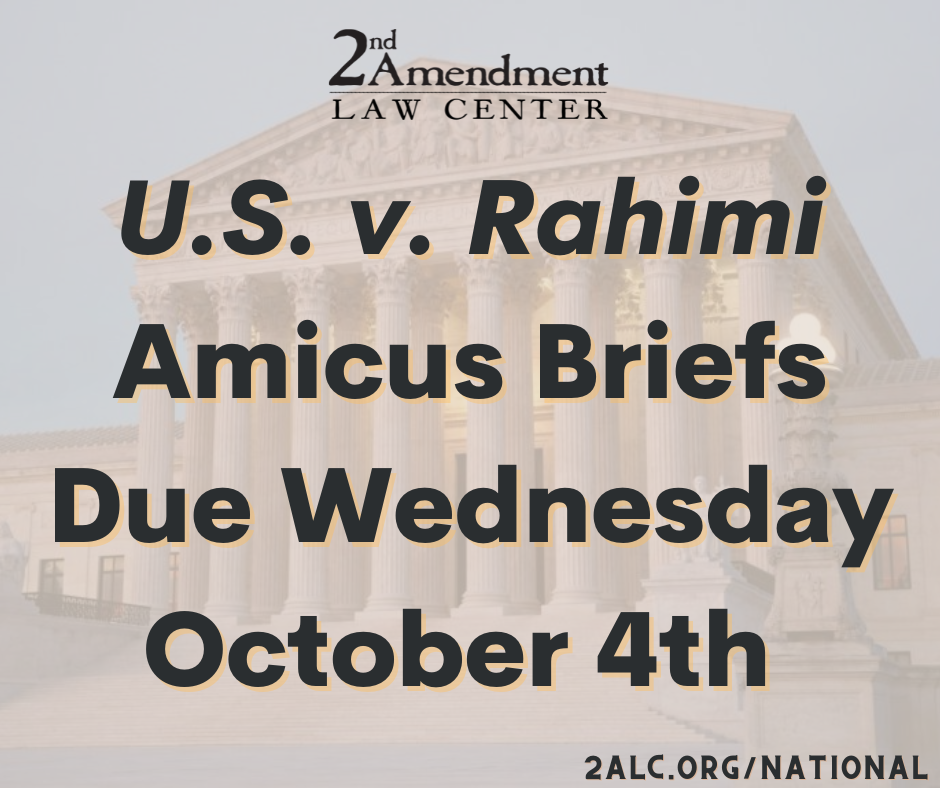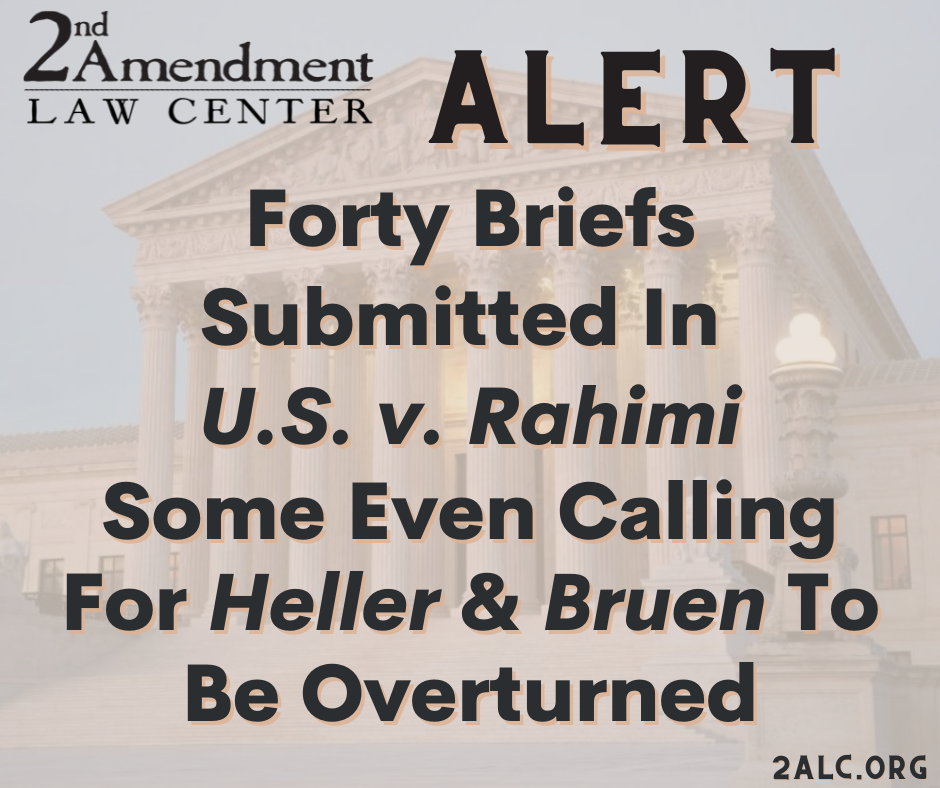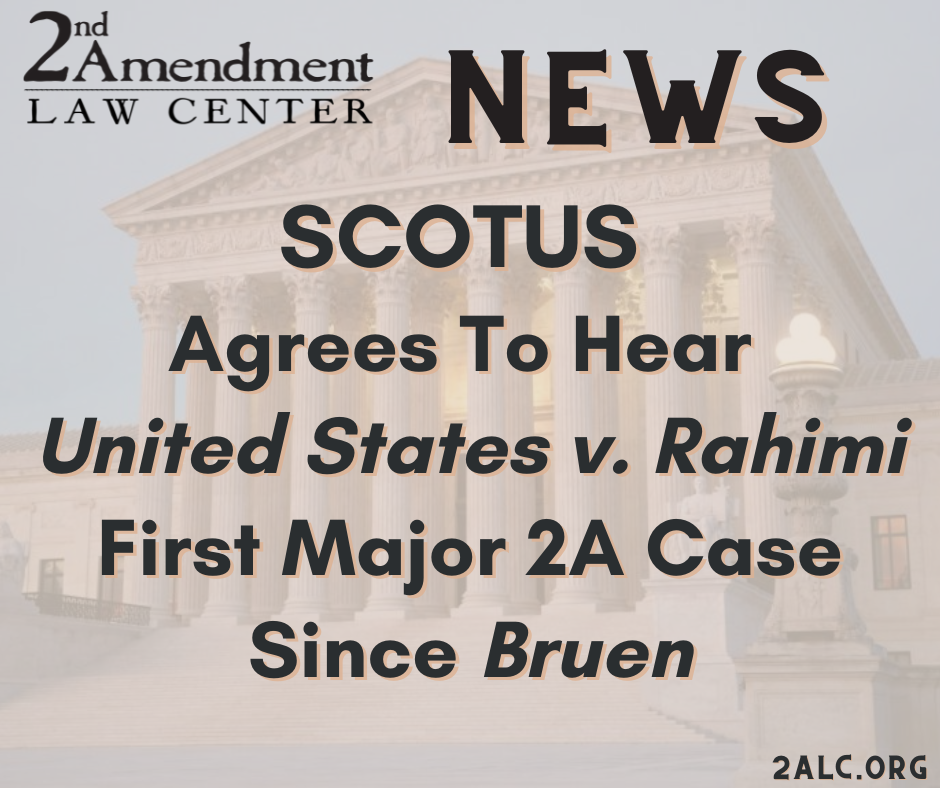The Supreme Court has decided to hear another Second Amendment case next term: United States v Rahimi. The decision to hear Rahimi comes just one year after SCOTUS decided the game-changing Bruen case. That might be good news for Second Amendment supporters, or not.
The Rahimi case involved a federal criminal prosecution under section 922 of the United States Code. A unanimous Fifth Circuit Court of Appeals panel struck down the law, holding that:
“Bruen forecloses any . . . analysis [of salutary policy goals] in favor of a historical analogical inquiry into the scope of the allowable burden on the Second Amendment right. Through that lens, we conclude that § 922(g)(8)’s ban on possession of firearms is an “outlier[] that our ancestors would never have accepted.”
Since the government lost the case in the Court of Appeals, it asked SCOTUS to hear the case. So now the Supreme Court will reconsider whether 922(g)(8)‘s bar on people subject to restraining orders possessing firearms is constitutional under Bruen‘s history and tradition-focused test for Second Amendment challenges.
In the process, the Court will likely have to decide whether and when an entire class of people can be prohibited from possessing firearms without consideration of individual circumstances. This case could affect other prohibited classes of people: cannabis users, non-violent felons, people with restraining orders, and certain misdemeanor convictions. It doesn’t help that Mr. Rahami is not a sympathetic character and is certainly not a poster child for Second Amendment rights. As the saying goes: bad facts can make bad law.
While the Supreme Court’s ultimate ruling in Rahimi will likely have to directly address whether the government can bar certain classes of people from possessing firearms there is more to it than that. Beyond that specific issue, the ruling in Rahimi may help settle some outstanding issues regarding how the Bruen test for evaluating the constitutionality of gun laws should be applied.
Remember that in the Bruen case, the central issue was whether the government could require people applying for a permit to carry a firearm in public could be required to show a special need beyond simple self-defense. But in deciding that, the Court clarified the test that should be used to determine the constitutionality of all gun laws. It took an “originalist” approach, requiring the government to show that there was a history and tradition of regulations like the one being challenged. In other words, the test now is designed to determine whether the Founding Fathers would have tolerated a law like the modern one being challenged. But governments attempting to justify gun bans have already twisted the Bruen test to make it easier for pre-inclined courts to uphold gun bans. Some clarification would be helpful to shut down the games the government is playing in other 2A cases.
But the Rahimi case could be dangerous to 2A rights. Anti-gun-owner advocates hope the Court will reverse the Fifth Circuit’s ruling. They believe that because they are reluctant to give someone like Rahimi back his gun rights, Justices Barrett and Kavanaugh and Chief Justice Roberts may join Justices Kagan, Sotomayor, and Jackson in upholding the law. How they could do that, without limiting the Bruen analysis and making the Second Amendment weaker, is the big question.
And that’s where the efforts of the Second Amendment Law Center come in. Mr. Rahimi is represented by the federal public defender’s office. That office has no particular expertise in 2A litigation. Amicus briefs are going to be critical.
The case will probably be argued before the Court in November or early December. Although requests to extend the briefing schedule could affect the deadlines. Opening briefs in Rahimi (the government’s brief and any supporting amicus briefs) will likely be due in mid-late August. Rahimi’s response and supporting amicus briefs would be due one month later, in September.
2ALC is already working to round up amicus participants and draft amicus briefs. Support our efforts and subscribe for updates below!














